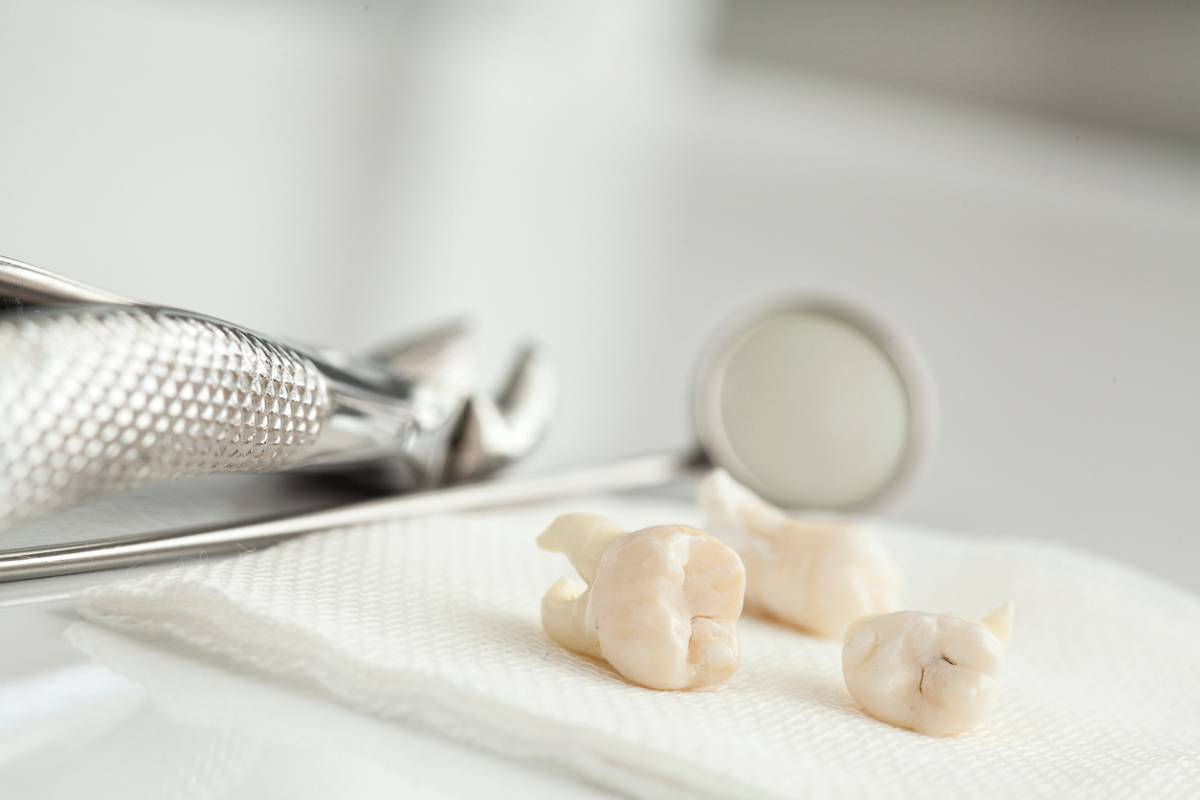Wisdom teeth removal is a surgical procedure usually done using some kind of anesthesia. Due to anesthesia, the procedure itself is typically not painful. This being said, in the recovery period, patients might experience some discomfort and pain because there is a wound left in the place where your wisdom tooth used to be. Some swelling and bleeding might occur. That is why you need to treat the area in a special way and know what foods to have after wisdom teeth extraction.
Foods to Have After Wisdom Teeth Extraction
Following your dentist’s recommendations and adhering to the diet we provided below will ensure that your mouth heals fast and there will not be any complications. The proper diet is especially important because it prevents the risk of further damaging your gum, getting infection, or dry socket. On top of that, proper nutrition will help your body to recover faster too.
First 24 Hours After the Surgery
The best and safest course of action is to adhere to a liquid diet in the first 24 hours after your teeth were extracted. The appropriate food might look like:
- Warm broths and bouillons
- Pureed soups
- Smoothies and milkshakes
- Yogurt and kefir
- Pudding
Remember that you should not use a straw to drink any liquids after wisdom teeth extraction. The reason for not using a straw is that the suction created by it can cause damage and dislodge the blood clot forming in the socket. To have the blood clot form in the place where the wisdom tooth used to be is important to ensure that the wound closes and heals properly.
After the First 24 Hours of Recovery
After the first 24 hours, you can switch to eating soft food that is not likely to damage the gum or get stuck in the socket. Such diet includes:
- Pureed vegetables and meet
- Very soft vegetables (steamed or boiled)
- Bananas
- Avocado
- Omelets
- Cottage cheese
- Soft bread
- Tofu
- Soft cheese
- Soft pasta
Foods to Avoid During Recovery
Eating the wrong foods after wisdom teeth extraction can increase the risk of complications. It is best to completely avoid these types of foods and drinks:
- Popcorn, crackers and chips
- Very acidic foods and beverages (juices, vinegar, etc.)
- Spicy food
- Grains (quinoa, bread with seeds, rice), nuts, and seeds
- Chewy and sticky food (caramel, taffy, bubble gum, jerky, etc.)
- Food and beverages containing a lot of sugar
Avoid Tobacco Products During Recovery
Try to abstain from smoking or using any kind of oral tobacco or nicotine products. Such products are vape pens, pouch tobacco, and chewing tobacco. Products that contain nicotine and tobacco tend to slow down the healing process. They also increase the risk of infection of the wound.
Common Complications After Wisdom Teeth Extraction
There are several types of complications that might occur if patients do not follow the care guidelines after the teeth extraction surgery.
Dry Socket
This can occur if the blood clot forming in the socket is removed or dislodged. If the blood clot is disturbed, the nerves under the gums become exposed to air and food that you eat. The signs that the blood was dislodged can include a sharp pain in the extraction area. We recommend seeing your dentist as soon as possible if this happens.
Pain and Swelling
To experience pain and swelling for some time after the surgery is expected. Usually, the pain can be remedied with over-the-counter painkillers like Ibuprofen. However, these feelings should go away after a couple of days. If swelling and pain still remain strong for several days after the surgery, contact your dentist and sign up for a check-up.
Excessive Bleeding
Experiencing bleeding for the first 8 to 12 hours after the surgery is normal. Your dentist will also recommend some methods that can help reduce the bleeding. Eating improper and hard food after the surgery can cause more bleeding. If you have excessive bleeding after that period of time, contact your dentist.
Discomfort Opening Your Mouth
Some patients might experience discomfort opening their mouth wide or a limited ability to open the mouth. Such stiffness usually will go away on its own. It is best to try to rest your jaw and not forcefully open your mouth for the first couple of days. That is why you also should avoid eating any hard foods that would make you bite down on them with force or open your mouth too wide. If the stiffness doesn’t go away, contact your dentist. You might be prescribed some additional treatment to help you heal.
Usually, after 6 days of recovery, patients notice a significant reduction in pain and swelling and can return to eating the food they are used to. If you have any concerns regarding wisdom teeth removal complications or need your teeth removed, visit one of our specialists at Turquoise Dental to get the care you need.




